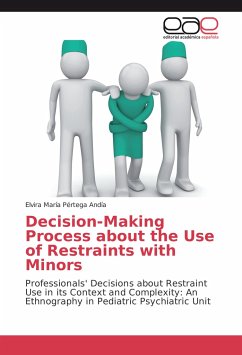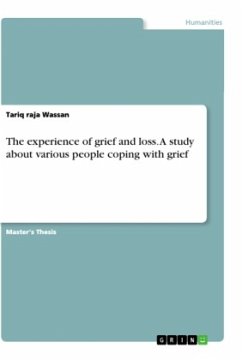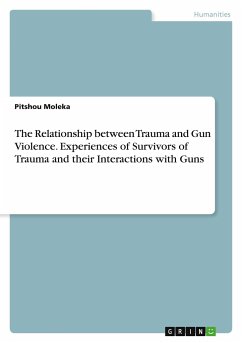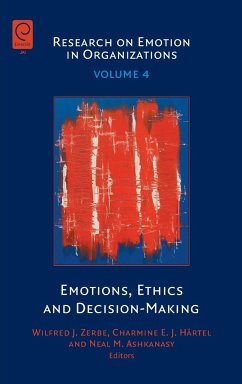
Decision-Making Process about the Use of Restraints with Minors
Professionals' Decisions about Restraint Use in its Context and Complexity: An Ethnography in Pediatric Psychiatric Unit
Versandkostenfrei!
Versandfertig in 6-10 Tagen
53,99 €
inkl. MwSt.

PAYBACK Punkte
27 °P sammeln!
The use of restraints in inpatient pediatric psychiatric units is a highly prevalent clinical practice, which extends worldwide. The high rates and negative consequences of restraints are particularly serious with youth. This practice also has important ethical, legal and human rights implications. Importantly, decisions about restraint use are not only frequent but are also inconsistent, which suggests that existing restraints protocols and standards may not be sufficient to regulate this practice in accord with human rights standards. To date, health professionals' decision-making process ab...
The use of restraints in inpatient pediatric psychiatric units is a highly prevalent clinical practice, which extends worldwide. The high rates and negative consequences of restraints are particularly serious with youth. This practice also has important ethical, legal and human rights implications. Importantly, decisions about restraint use are not only frequent but are also inconsistent, which suggests that existing restraints protocols and standards may not be sufficient to regulate this practice in accord with human rights standards. To date, health professionals' decision-making process about restraints have not been explained in sufficient complexity, and it is not known to what extent existing restraint protocols are useful to guide professionals' decisions. The purpose of this study was to explore professionals' decision-making process about the use of restraints in its context and interactive complexity through an ethnographic work at two inpatient pediatric psychiatric units.












